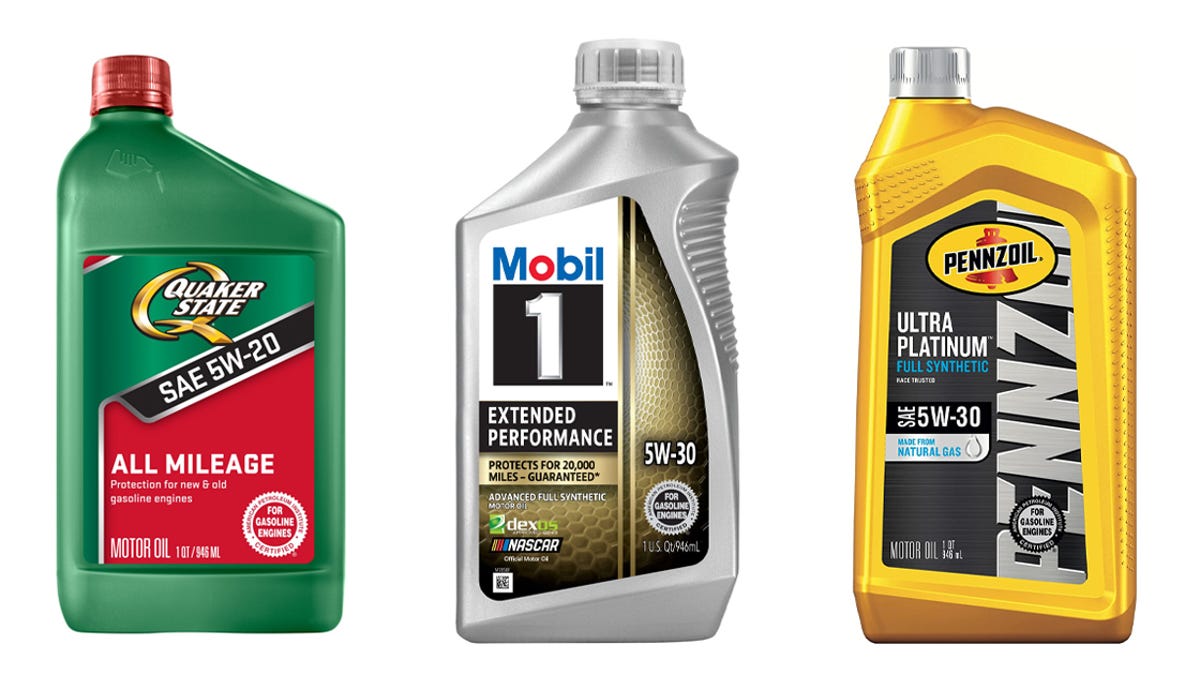Using high-quality oil for your oil change ensures better engine lubrication and prolongs engine life. Quality oil reduces friction and prevents premature wear and tear on engine components, leading to improved performance and fuel efficiency.
Making the choice to use high-quality oil during your routine oil changes can have a significant impact on the overall health and longevity of your vehicle. By opting for top-tier oil products, you can safeguard your engine against damage and maintain optimal performance.
It is crucial to consider the quality of the oil you use, as it directly affects how well your engine functions and how long it will last. High-quality oil not only lubricates the engine more effectively but also helps to ensure that all components function smoothly and efficiently.

Credit: www.cnet.com
The Importance Of Using High-quality Oil
If you want to keep your car running smoothly and efficiently, using high-quality oil for your oil change is essential. High-quality oil offers numerous benefits for your engine, including enhanced engine performance and an extended engine lifespan.
Enhanced Engine Performance
Using high-quality oil can significantly improve the performance of your engine. High-quality oil contains the right additives and viscosity to ensure optimal lubrication and reduce friction within the engine. This helps to minimize wear and tear on the engine components, allowing it to operate more efficiently.
When you use low-quality or improper oil, it can lead to increased friction, overheating, and increased wear on vital engine parts. This can result in a decrease in engine performance, reduced fuel efficiency, and potentially costly repairs down the line.
On the other hand, using high-quality oil helps to reduce friction and keep the engine running smoothly. It provides better protection against heat and debris build-up, allowing the engine to operate at its best performance level.
Extended Engine Lifespan
Using high-quality oil also helps to extend the lifespan of your engine. The advanced additives and detergents in high-quality oil help to keep the engine clean, preventing deposits and sludge from forming on critical engine parts.
These deposits can block oil passages and restrict proper lubrication, leading to increased wear and decreased engine lifespan. By using high-quality oil, you can reduce the risk of engine damage and ensure the longevity of your vehicle.
In addition, high-quality oil provides better protection against oxidation and thermal breakdown, which can occur due to high temperatures generated by the engine. This helps to maintain the oil’s effectiveness and prolong the life of the engine.
Regularly using high-quality oil and following the manufacturer’s recommended oil change intervals can help to maximize the lifespan of your engine and keep it running smoothly for years to come.
In Conclusion
Using high-quality oil for your oil change is vital for preserving your engine’s performance and extending its lifespan. It enhances engine performance by reducing friction and promoting optimal lubrication. Additionally, it helps to prevent deposits and sludge build-up, ensuring a cleaner engine and reducing the risk of costly repairs. Invest in high-quality oil for your oil change to experience the benefits of enhanced engine performance and an extended engine lifespan.
Credit: girlingtongarage.com
Benefits Of High-quality Oil
High-quality oil for your oil change can provide better engine lubrication, leading to improved performance and fuel efficiency. It also helps to reduce engine wear and prolongs the lifespan of your vehicle, ultimately saving you money on costly repairs in the long run.
Improved Lubrication
High-quality oil ensures smooth engine operation with adequate lubrication.
- Prevents friction that can cause engine wear and tear.
- Protects engine components from heat and stress.
- Reduces the risk of overheating and potential breakdowns.
Better Fuel Economy
Using high-quality oil can lead to improved fuel efficiency in your vehicle.
- Reduces internal engine resistance for optimal performance.
- Enhances combustion efficiency for better mileage.
- Increases engine longevity and overall performance.
Potential Risks Of Using Low-quality Oil
Using low-quality oil for your oil change can pose potential risks to your vehicle. It may lead to engine wear, overheating, and decreased fuel efficiency. Opting for high-quality oil ensures better engine protection, smoother performance, and longer engine life, making it a worthwhile investment for your vehicle.
Increased Engine Wear
Low-quality oil can lead to higher friction within your engine, causing increased wear on critical components.
Higher Maintenance Costs
Using subpar oil may result in more frequent oil changes, leading to higher overall maintenance costs.

Credit: craigscarcare.com
Choosing The Right High-quality Oil
When it’s time for an oil change, it’s essential to choose the right high-quality oil for your vehicle. Using the right oil can help improve engine performance, protect vital engine components, and enhance fuel efficiency. But with so many options available, finding the perfect oil can feel overwhelming. So let’s dive into two key factors to consider when choosing high-quality oil: understanding viscosity ratings and considering synthetic vs. conventional oils.
Understanding Viscosity Ratings
Viscosity is a measure of an oil’s resistance to flow. It plays a crucial role in how well the oil can lubricate engine parts. The Society of Automotive Engineers (SAE) assigns a viscosity rating, usually depicted as a number followed by the letter “W,” to different oils. The “W” stands for winter, indicating how well the oil flows in colder temperatures. The lower the number before the “W,” the better the oil can flow in low temperatures.
For example, a 5W-30 oil is thinner and will flow better in cold weather compared to a 10W-30 oil. However, it’s important to follow the manufacturer’s recommendations for your vehicle to ensure optimal performance, as different engines may have different viscosity requirements.
Considering Synthetic Vs. Conventional Oils
When it comes to choosing the right high-quality oil, you’ll likely encounter the choice between synthetic and conventional oils. Conventional oil is derived from crude oil, while synthetic oil undergoes a complex process to create a more refined and tailored product.
Synthetic oils offer several advantages over conventional oils. They provide better high-temperature stability, which helps protect engine components during extreme operating conditions. Synthetic oils also have superior resistance to breakdown, offering longer-lasting protection and reducing the need for frequent oil changes. Additionally, synthetic oils flow better at lower temperatures, improving cold-start performance.
However, synthetic oils can be more expensive than conventional oils. If you primarily drive under normal operating conditions, a high-quality conventional oil may still provide adequate protection for your engine.
Frequently Asked Questions Of Why Use High-quality Oil For Your Oil Change?
Does High Quality Oil Make A Difference?
High quality oil does make a difference. It improves performance, prolongs engine life, reduces friction, enhances fuel efficiency, and protects against wear and tear. Using high quality oil ensures better overall engine performance and helps maintain the longevity of your vehicle.
Does It Really Matter What Brand Of Oil You Use?
The brand of oil you use matters as quality differs. Choose a reputable brand for top performance and longevity.
Does Premium Oil Really Make A Difference?
Premium oil can enhance engine performance, improve fuel efficiency, and provide better protection against wear and tear.
Does Oil Change Quality Matter?
Yes, oil change quality does matter. High-quality oil helps to maintain the engine’s performance, minimize friction, reduce wear and tear, and improve fuel efficiency. Regular oil changes with quality oils can extend the lifespan of your engine and prevent costly repairs.
Conclusion
Investing in high-quality oil for your oil change is crucial for the longevity and performance of your vehicle. By using oil that is specifically designed for your engine, you can ensure optimal lubrication and protection against wear and tear. This will ultimately save you money on repairs and extend the life of your engine.
Make the smart choice and prioritize high-quality oil for your oil change.
